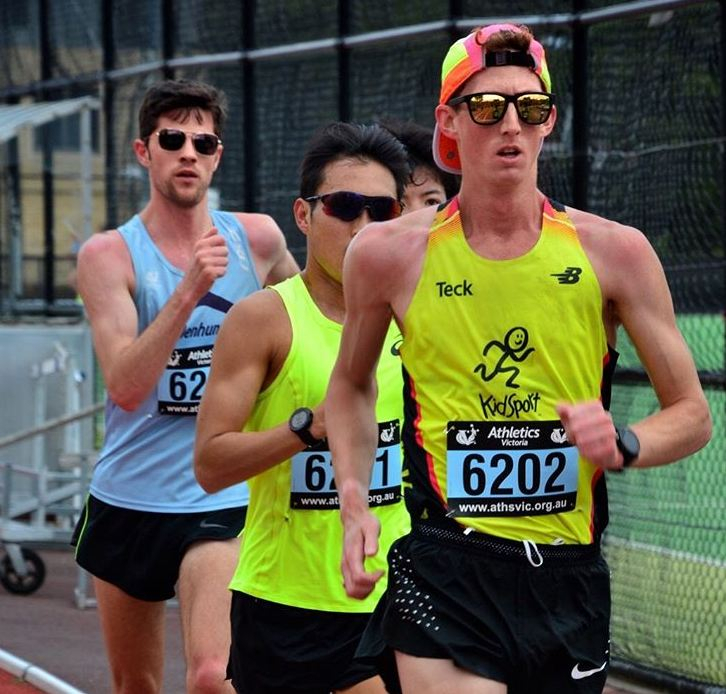Canadian Evan Dunfee grew up dreaming about competing in the Olympics but was not good at sports and looked unlikely to fulfill his ambition until a desire to prove schoolyard bullies wrong led him to race walking.
Dunfee describes his younger self as the quintessential kid to pick on given his curly red hair, thick-rimmed glasses and lack of coordination, but he found solace in a sport that itself is often the butt of jokes. "I got into race walking because I wanted to be good at something and because I wanted to shut my bullies up. A sort of "I'll show you' type of mentality", world championship bronze medallist Dunfee told Reuters.
"Then you go to high school as a race walker and that shuts nobody up. So you develop a thick skin pretty quickly." Dunfee, 29, said his motor skills were really delayed which meant as a child he would routinely get hit in the face while playing sports like baseball and dodgeball.
Followed in brother's footsteps

So when his older brother tried race walking as a way to stay fit while not tearing stitches following an appendectomy and finished third in his first competition, Dunfee figured it must be easy and gave it a try.
At his first race a competitor looked down at Dunfee, aged 10, and asked what time he was targeting. Since Dunfee had not given it much thought, he blurted out that he was hoping to finish the 800 metres race in five minutes. "He was like, 'you'll never do that on your first try'. Well I beat that kid, won the race and I went 4:58 and I was hooked," Dunfee recalled. "I was like: race walking, this is what I am going to do."
'Completely blew up'
Dunfee won bronze at the world championships last September in Doha where the men's 50 kilometre walk was held in extremely hot and humid conditions.
The Canadian said he lacked confidence and miscalculated his race, issues he hopes to have sorted out for this year's Tokyo Olympics where he wants to avenge a near miss at the 2016 Rio Games. Dunfee crossed the finish line of the 50km walk in fourth place but was upgraded to bronze after Japan's Hirooki Arai was disqualified for bumping the Canadian late in the race. Arai won an appeal, however, sending Dunfee back to fourth and he opted against a counter-appeal. For a period after the Games, Dunfee lost trust in the process.
"I was just focusing on results," said Dunfee. "After Rio I was like I am now top four in the world so let's focus on medals and I would go to these races being like medal, medal, medal and I would completely blow up." Dunfee's quest for an Olympic medal will take place in Sapporo instead of Tokyo because the International Olympic Committee (IOC) moved the marathon and walking events 800 kilometres outside the capital due to heat concerns.
Questions decision to not relocate events
The decision irked Dunfee, who has suggested the IOC is just trying to preserve its reputation after the women's marathon at the world championships in Doha produced shocking scenes as many competitors dropped out in the sweltering heat.
Dunfee also wonders why other Olympic events that could be affected by the heat have not been relocated and is upset that residents of the host city will not be able to attend the free endurance events. "I can usually separate sport from outspokenness and standing up for what I believe in," said Dunfee.
"But this one, everything blended together and emotionally this one took a lot out of me and I know that now I need to start building myself back up and putting it aside and getting clearly focused on what my goals are for Tokyo."









